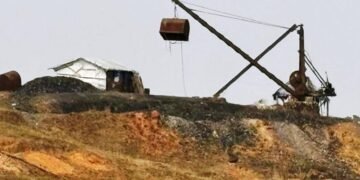Israel and Hamas have agreed to a deal with Qatari mediators for a four-day temporary truce and the release of around 50 hostages. The deal has brought in some respite to war-affected Palestinians while providing relief to the loved ones of some of the hostages. As the war entered its seventh week, the pre-truce situation in Gaza remained perilous. The worsening humanitarian crisis in Gaza became most apparent with two-thirds of hospitals stopped operating as they ran out of fuel, water, electricity and food as the number of deaths and those of injured continued to rise.
The temporary truce, which was brokered by Qatar, Egypt and the United States, begins on the morning of November 22 after weeks of negotiations amid increasing pressure for an immediate ceasefire to curb the crisis in Gaza. Qatar announced that Hamas would release 50 out of the nearly 240 hostages captured during the group’s brutal attack on Israel on October 7 that killed over 1,200 people. In return, Hamas asked for the release of 150 Palestinian prisoners in Israel.
The people released from both sides include women and children. The hostages would be released in groups throughout the temporary ceasefire. After the first batch of hostages, the Israeli side would release the first group of Palestinian prisoners. Israel also said that the truce would be extended for a day for every ten additional hostages. The Palestinians to be released include teenagers who were detained during violent attacks in the occupied West Bank region in 2022 and 2023. Israel currently has roughly 7,000 Palestinians accused or convicted of security-related offences.
This represents a classic Hamas strategy of capturing Israeli civilians and holding them hostage in exchange for the release of Palestinian prisoners. Israel has been forced to release a large group of such prisoners in the past after periodic attacks from Hamas militants. The four-day truce is unlikely to change the course of the Israel-Hamas war. Israel is expected to continue where it left things off after the truce period is over. What this means is that Israel would resume its airstrikes and its troops will continue their ground operations in Gaza.
However, the deal will likely bolster Hamas. With a short break in fighting, Hamas militants can strategise better in their next stage of operations, regroup and change military tactics to combat the Israeli offensive. It can also press for the release of more Palestinian prisoners as Netanyahu is under increasing pressure at home from the families of the hostages. Although Israeli jets and troops are expected to hold their fire during the truce and Hamas militants have been asked to stop launching rockets at Israel, the decades-old conflict between the two sides makes a complete ceasefire a very difficult situation, at least for now.


























